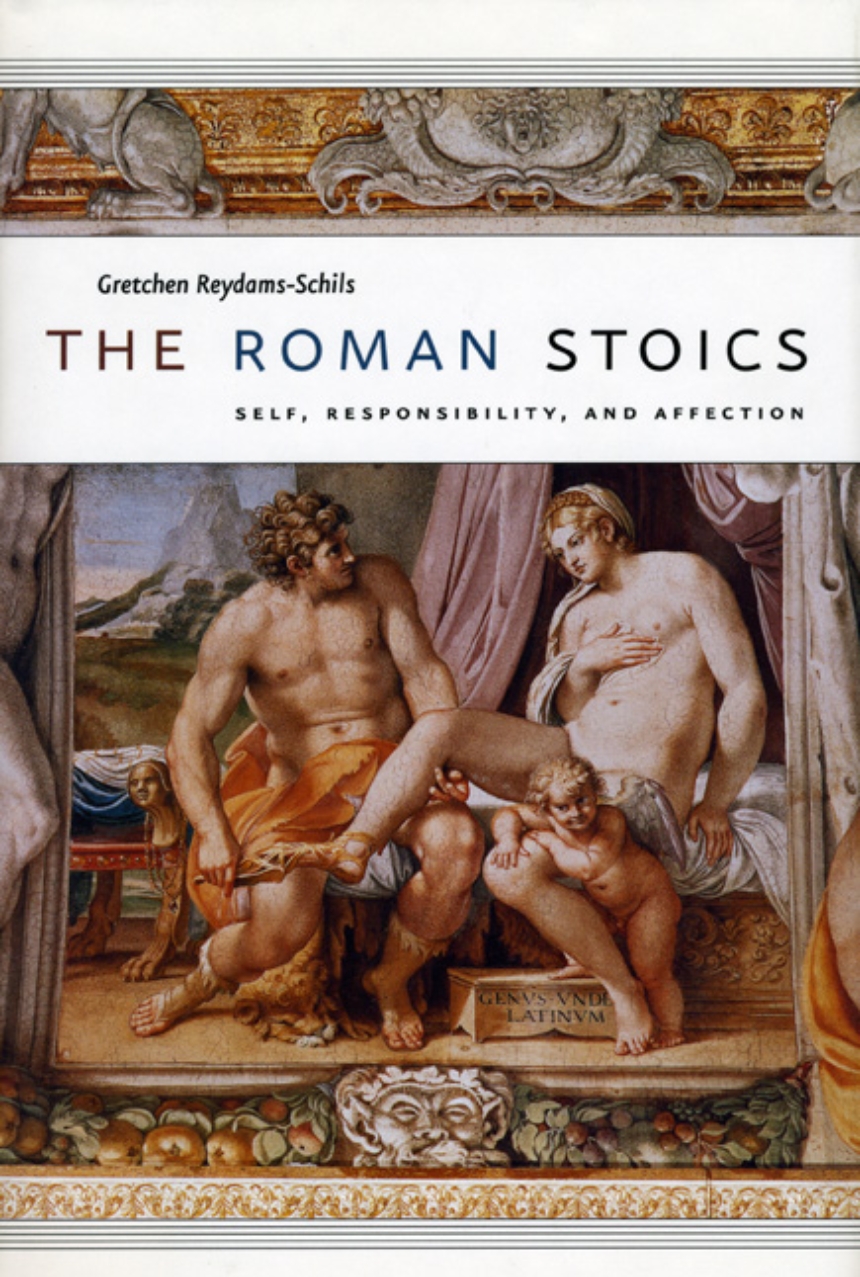The Roman Stoics
Self, Responsibility, and Affection
Roman Stoic thinkers in the imperial period adapted Greek doctrine to create a model of the self that served to connect philosophical ideals with traditional societal values. The Roman Stoics-the most prominent being Marcus Aurelius-engaged in rigorous self-examination that enabled them to integrate philosophy into the practice of living. Gretchen Reydams-Schils’s innovative new book shows how these Romans applied their distinct brand of social ethics to everyday relations and responsibilities.
The Roman Stoics reexamines the philosophical basis that instructed social practice in friendship, marriage, parenting, and community. From this analysis emerge Stoics who were neither cold nor detached, as the stereotype has it, but all too aware of their human weaknesses. In a valuable contribution to current discussions in the humanities on identity, autonomy, and altruism, Reydams-Schils ultimately conveys the wisdom of Stoics to the citizens of modern society.
The Roman Stoics reexamines the philosophical basis that instructed social practice in friendship, marriage, parenting, and community. From this analysis emerge Stoics who were neither cold nor detached, as the stereotype has it, but all too aware of their human weaknesses. In a valuable contribution to current discussions in the humanities on identity, autonomy, and altruism, Reydams-Schils ultimately conveys the wisdom of Stoics to the citizens of modern society.
